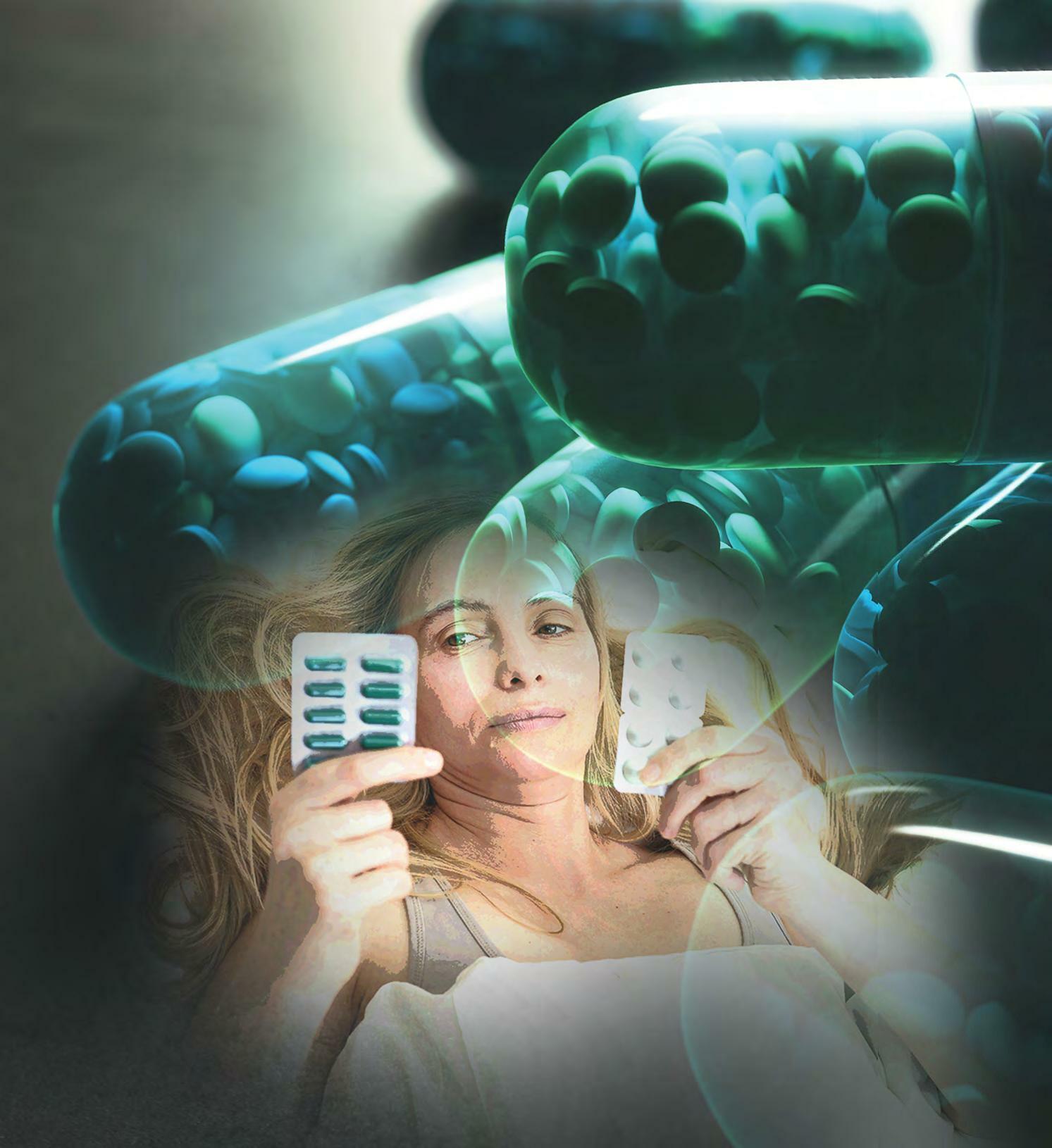Prøve GULL - Gratis
Antidepressant blues
What Doctors Don't Tell You Australia/NZ
|Aug/Sep 2023
SSRIs impair the brain’s reward learning system, new research finds. Celeste McGovern looks at safe ways to get off antidepressants and alternative treatments
-

Psychiatry is in crisis. Among the problems plaguing the profession are soaring mental health statistics, patient recovery rates that have flatlined for decades, and a growing stack of evidence that the primary tools of the trade psychoactive drugs including super-selling antidepressants don’t work so well and are linked to an expanding litany of damaging side-effects that are increasingly hard to ignore.
Depression remains the number one cause of disability in the United States, as it is across the Western world. Younger adults and adolescents are most affected, and increasingly at younger ages; suicide is now the second leading cause of death for youths aged 10 to 19. Mental illness is the leading cause of disability in children, outpacing physical disabilities like cerebral palsy or Down syndrome. A staggering 2.7 million American children ages 3–17 received a depression diagnosis in 2016–2019.
By far the biggest consumers of antidepressants are women, however. More than 17 percent of American women had taken antidepressants in the past month in 2015–2018, according to the CDC, and for women over the age of 60, that number rose to nearly one in four (24.3 percent).
Doctors used to prescribe antidepressants for people with rare “melancholia” back in the 1960s and ’70s, but the old drugs, like tricyclics, had grim side-effects and their use was limited.
In the late ’80s, a new line of antidepressants called SSRIs (selective serotonin reuptake inhibitors) was approved by the US Food and Drug Administration. SSRIs block the reuptake of the chemical messenger serotonin into neurons and thereby are believed to make more serotonin available to improve transmission of messages between neurons.
Denne historien er fra Aug/Sep 2023-utgaven av What Doctors Don't Tell You Australia/NZ.
Abonner på Magzter GOLD for å få tilgang til tusenvis av kuraterte premiumhistorier og over 9000 magasiner og aviser.
Allerede abonnent? Logg på
FLERE HISTORIER FRA What Doctors Don't Tell You Australia/NZ

What Doctors Don't Tell You Australia/NZ
The guy who came in from the cold
Cold-water therapy may not be so good for us after all
3 mins
Aug/Sep 2025
What Doctors Don't Tell You Australia/NZ
A five-minute exercise session reduces blood pressure
Adding just five minutes of activity to your day starts to lower your blood pressure. Even mild exercise like walking up or down the stairs could be enough, say researchers from the University of Sydney.
1 min
Aug/Sep 2025

What Doctors Don't Tell You Australia/NZ
Aromatherapy makes birth easier
Aromatherapy can ease labor pains and even make the birth easier.
1 min
Aug/Sep 2025

What Doctors Don't Tell You Australia/NZ
The best defense
Thyroid cancer is on the rise, says Dr Leigh Erin Connealy. Here's how to keep your thyroid gland healthy and cancer-free
7 mins
Aug/Sep 2025
What Doctors Don't Tell You Australia/NZ
A failed heart can heal itself
The heart can heal itself and regenerate new muscle and tissue.
1 min
Aug/Sep 2025
What Doctors Don't Tell You Australia/NZ
Omega-3 oils stop the growth of prostate cancer
Men whose prostate cancer is in its early phase should start taking omega-3 supplements and eating more fish—it can stop the growth of cancer cells.
1 min
Aug/Sep 2025
What Doctors Don't Tell You Australia/NZ
Thyroid drug can cause osteoporosis
People taking one of the world's most prescribed drugs are at risk of developing osteoporosis, the disease that weakens bones. The drug, levothyroxine, is the standard remedy for hypothyroidism, but it's also prescribed to people with normal thyroid activity.
1 min
Aug/Sep 2025
What Doctors Don't Tell You Australia/NZ
HRT after menopause doubles heart attack and stroke risk
Most of the seven different forms of HRT (hormone replacement therapy) increase the risk of cardiovascular disease, but some are more dangerous than others.
1 min
Aug/Sep 2025

What Doctors Don't Tell You Australia/NZ
Sail through menopause
Hormone replacement therapy is back in fashion. Celeste McGovern looks at the risks and alternatives
13 mins
Aug/Sep 2025

What Doctors Don't Tell You Australia/NZ
Keto diet boosts new cancer therapy
A new type of immunotherapy to fight cancer is boosted by a ketogenic diet.
1 min
Aug/Sep 2025
Translate
Change font size

